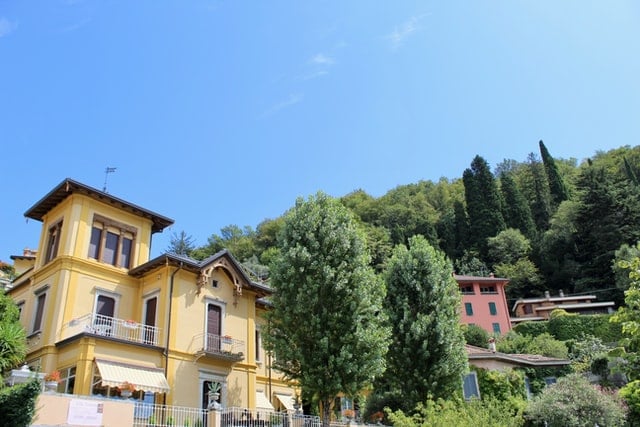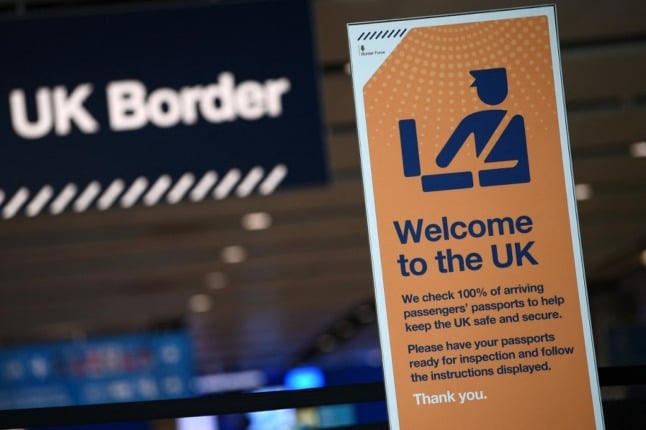Britain's membership of the EU has meant there is no limit on how many months of the year they can spend in Italy. But Brexit is set to change that.
Kalba Meadows from British in Europe said: “Make no bones about it. Brexit will change the life, and the lifestyle, of anyone with a second home in an EU27 country or who spends more than three months at a time in an EU27 country.”
At present we are in a transition period, and people can continue to move freely (allowing for coronavirus-related border restrictions) until that ends.
The transition period is currently agreed to run until December 31st, 2020 (although it may be extended if both sides agree before July 2020) and during that time the EU and UK will negotiate on what the rules for the future will be – in between attempting to negotiate a trade deal and many other aspects of the future relationship.
So everything stays as it is for the next six months, but after that we don't know what will happen.
READ ALSO:
- REMINDER: What the Brexit deal means for Brits in Italy
- Brits in Italy: It may be your last chance to apply for residency as EU citizens
- No, marrying an Italian won't save you from Brexit
This is one of the things still to be negotiated, but it seems likely that the rule will follow one of the models that currently exists for visits between non-EU countries.
Michael Harris from the campaign group Eurocitizens told The Local: “If freedom of movement for EU/UK citizens is not provided for in the future relationship agreement, which seems highly likely at the moment, Britons who do not fall under the scope of the Withdrawal Agreement because they are not resident in the EU will probably be subject to a rolling restriction of 90 days in any 180-day period within the Schengen Zone,” he said.
At present, the majority of EU countries operate the 90-day rule for people who do not have residency or a work or study visa.
Americans, Australians, Indians and other non-EU nationals in Italy will already be familiar with the 90-day rule – people who are not resident here can spend up to 90 days out of every 180 in the EU (with or without a visa depending on the country you are visiting from) but after that must either apply for residency or a work or study visa.
READ ALSO: The ultimate guide to getting residency in Italy
Over a year you could spend 180 days in total in Italy but not consecutively, you would have to spend time outside the EU (such as back in the UK) in between.
You can do your 90 days as one block or as several shorter trips, but in every 180 days the total number of days must not exceed 90.
It's worth pointing out that the 90-day rule applies to the total number of days for all countries in the Schengen area. So it's no good spending 89 days in Italy then popping over the border to France or Switzerland for a few days: the 90-day clock will only stop ticking once you leave the EU.
The group Eurocitizens provides an example from Spain of what could happen if these rules are brought in for British second home owners after Brexit.
“Sarah and Paul used to go to their villa in Alicante every Easter from mid-March and stay until the middle of October. Now they can only go from mid-March to mid-June and then they can go back from mid-September for another three months. However, any other time that they spend elsewhere in the Schengen Zone (for business or pleasure) will reduce the length of time that they will be able to stay in Spain.”
The EU offers this Schengen Area calculator to allow you to calculate your stay.
It's possible that the UK will seek to negotiate longer access to EU countries such as Italy for its citizens, but any such arrangement would have to be reciprocal and given the UK's hard line on freedom of movement in negotiations to date that may well not happen.
Michael Harris from Eurocitizens says: “On the Freedom of Movement issue in current EU/UK negotiations, it seems that the UK is not in favour of this being included in any future agreement. A recent European Parliament resolution urged the EU and the UK to strive towards a high level of mobility rights in the future agreement and regrets the fact that the UK has so far shown little ambition with regard to citizens' mobility, which the UK and its citizens have benefitted from in the past.”
Either way, it remains TBC despite several campaigns to allow a 180 day rule that doesn't require people to divide their 180 days into two portions of 90 (so that people could, for example, spend the summer in Italy and the winter in the UK).
So what happens if you overstay your allowed 90-day period in Italy?
Well there are strict rules on visa overstaying, but until now some countries have been more rigorous than others in how they apply them.
Overstaying your welcome can in one of the worst case scenarios result in a fine or deportation. You may also find that your passport gains an 'illegal immigrant' or 'illegal overstay' stamp which is likely to make it very hard for you to re-enter the country (or potentially other countries) at a later date.
But this will all likely become clearer in the coming months.
Check out The Local's Brexit section for more details and updates.



 Please whitelist us to continue reading.
Please whitelist us to continue reading.
Member comments